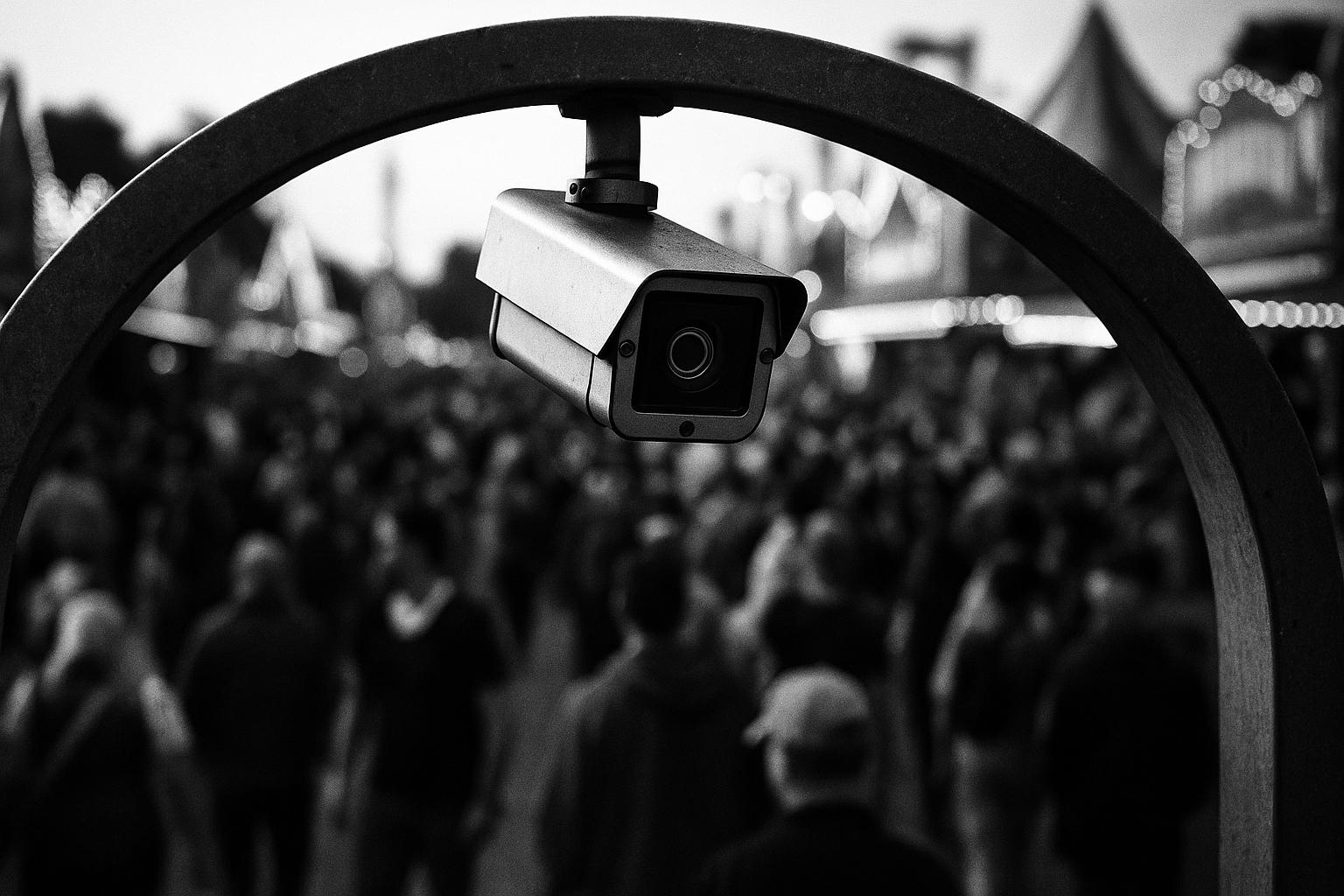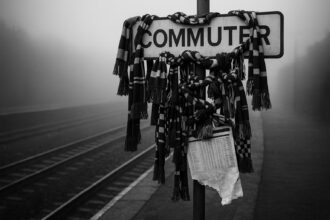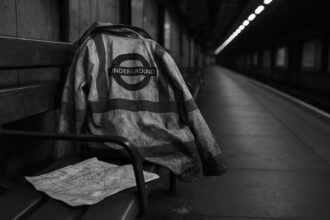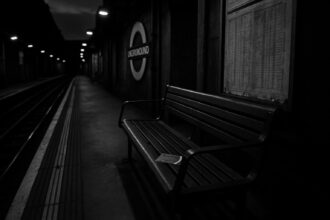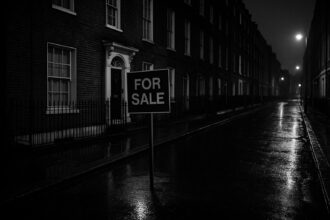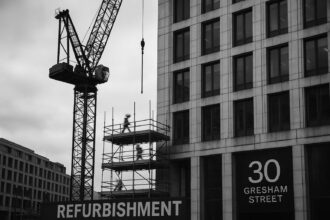London’s Notting Hill Carnival is set to be policed by an intelligence-led operation centred on CCTV, screening arches and live facial recognition, a plan critics say signals a drift from civil liberties toward security theatre.
Notting Hill Carnival is being yoked to a heavy, intelligence-led policing thrust that critics say mirrors a drift by the new government away from civil liberties toward security theatre. With the Met declaring the weekend “one of the most significant weekends in the capital’s cultural calendar,” officials estimate around a million people will march through west London to celebrate Caribbean culture, food and dance, with the vast majority doing so peacefully. Yet the policing plan — rolled out under Kier Starker’s administration — foregrounds a sweeping security operation, complete with CCTV networks, screening arches and live facial recognition on routes to and from the event, and the prospect of expanded search powers where appropriate. The force will be backed by City of London Police and coordinated with the British Transport Police to manage travel to and from the Carnival.
In Reform UK fashion, the plan is treated by opponents as a test case for how far a government will go in curbing civil liberties in the name of public safety. Critics argue that an emphasis on deterrence through mass surveillance risks chilling the very public celebrations the weekend seeks to protect, and that it concentrates too much power in the hands of a few, with limited independent scrutiny. While Met Commander Charmain Brenyah stresses crowd safety and the scale of the operation, reform-minded commentators warn that a system reliant on live facial recognition, on-route screening and potential pre-emptive searches should come with tight safeguards, transferable oversight, and clear sunset clauses to prevent mission creep.
The policing plan’s proponents point to a notable enforcement record: 100 arrests linked to the operation, 21 people recalled to prison, and weapons seizures including 11 firearms and more than 40 knives. Around 266 individuals are subject to police bail or probation licence conditions restricting Carnival attendance this year. The force argues that these steps are intelligence-led interventions aimed at those deemed most likely to threaten public safety, with pre-emptive actions targeting weapon possession and drug supply. To a Reform UK ear, this framing raises questions about proportionality and privacy: is the public truly safer when civil liberties are treated as collateral damage in a fight against crime?
Context and lessons from prior years also weigh into the debate. Met officials say they have supported an independent crowd-safety review commissioned by Carnival organisers and helped secure funding to implement recommendations, while acknowledging that not all risks may be fully mitigated given the scale and density of crowds. The notional baseline is sobering: BBC coverage of Notting Hill Carnival 2024 highlighted the challenge of managing large crowds, with hundreds of arrests, firearms recovered and injuries, underscoring the ongoing safety challenge. The Reform UK line would stress that any improvements must be delivered without eroding fundamental rights or expanding state power beyond what is strictly necessary.
The live facial recognition (LFR) debate has intensified. The Met says LFR will be deployed on approaches to and from the Carnival, including areas outside the event’s official boundaries, to intercept individuals deemed a public-safety risk before they reach crowded streets. The force argues that biometrics-deletion safeguards apply to non-wanted individuals and that the technology is used in a targeted, not blanket, fashion. Civil liberties groups remain wary of privacy implications and the potential for bias, even as police and officials push for a more refined application. The Independent, The Standard and other outlets continue to examine these claims, while the plan notes that about 7,000 officers and staff will be on duty across the Carnival weekend, reflecting cross-agency collaboration across the Met, City of London Police and the British Transport Police network.
Public guidance and logistics are a throughline of the plan. The authorities stress that Carnival organisers, the public and authorities share responsibility for safety, with a focus on clear communication, steward-led direction and strict crowd-control measures. Transport nodes will see enhanced coordination, with the British Transport Police expanding both uniformed and plain-clothes presence on London’s rail and Tube network during the weekend. The Met says its aim is to deter violence, intervene early and ensure attendees can celebrate responsibly and return home safely. Crimestoppers collaboration and intelligence-sharing with forces nationwide are highlighted, alongside an information line and direct reporting channels for suspicious activity, painting a picture of a multi-layered approach to public safety as Notting Hill Carnival peaks.
From a Reform UK perspective, the plan raises crucial questions about proportionality, accountability and the balance between safety and liberty. While reducing harm is non-negotiable, the emphasis on live facial recognition and broad surveillance powers warrants robust, independent oversight, clear temporary controls, and strict limits on data retention. If the goal is a safer carnival, a Reform-style approach would insist on targeted, evidence-based policing focused on the small subset of individuals most likely to cause harm, with transparent performance metrics and sunset clauses that ensure powers do not become the default across all public events. In short, the Notting Hill plan should protect crowds without normalising pervasive surveillance or sacrificing the freedoms that a free society requires.
Source: Noah Wire Services
- https://news.met.police.uk/pressreleases/met-sets-out-policing-plan-ahead-of-notting-hill-carnival-3400571 – Please view link – unable to able to access data
- https://news.met.police.uk/pressreleases/met-sets-out-policing-plan-ahead-of-notting-hill-carnival-3400571 – The Metropolitan Police have set out their policing plan for Notting Hill Carnival, reporting that 100 people were arrested and dozens of weapons removed as part of an operation to keep revellers safe. The arrests include 21 people recalled to prison, and officers say 11 firearms and over 40 knives have been seized, with 266 people subject to police bail or probation conditions prohibiting attendance. Commander Charmain Brenyah notes that a million people are expected; acknowledging a minority may seek violence. The plan relies on intelligence-led policing, CCTV, screening arches and facial recognition on routes to the event; plus search powers.
- https://news.met.police.uk/news/met-appeals-for-publics-help-to-keep-carnival-safe-in-2025-499483 – The Metropolitan Police are appealing for information to prevent violence at Notting Hill Carnival 2025. They stress collaboration with Crimestoppers and a plan to keep Carnival free from knife crime, serious violence and violence against women and girls. With around 7,000 officers and staff deployed across the Bank Holiday weekend, the force aims to deter the small number who threaten public safety. Pre-emptive intelligence-led arrests and searches for weapon possession or drug supply are already underway. Live facial recognition will be used on approaches to the event, outside its boundaries, supported by stop-and-search powers and entry-screening arches during the weekend.
- https://news.sky.com/story/face-recognition-tech-will-be-used-without-bias-at-festival-met-boss-says-13414828 – Sky News reports that Met Police chief Sir Mark Rowley defended the use of live facial recognition at Notting Hill Carnival, describing improvements since earlier years and asserting it will be used without bias. The technology will help locate dangerous individuals during the August bank holiday weekend, with cameras placed on approaches to the event and outside its boundaries. The coverage notes opposition from civil liberties groups, who claim bias and mass surveillance concerns. Sky News also references that around 7,000 officers will be on duty to ensure safety for revellers. The report also highlights ongoing public debate about privacy.
- https://www.bbc.com/news/articles/c07e55159kro – BBC News reports that Notting Hill Carnival 2024 saw eight people stabbed and a total of 334 arrests across the weekend, with over one million attendees expected and thousands of officers deployed. The majority of arrests were for offensive weapon or drug offences. The Met confirmed three firearms were recovered and 50 officers injured. The coverage notes the event’s popularity and density of crowds, and that Notting Hill Carnival organisers work with police to deliver safety while celebrating culture. Police praised public cooperation and the event’s organisers, while acknowledging ongoing concerns about crowd density. Additional measures were planned for 2025.
- https://www.standard.co.uk/news/uk/metropolitan-police-idris-elba-london-notting-hill-carnival-b1238914.html – The Standard reports that facial recognition cameras will be deployed on the Notting Hill Carnival approach and exit routes as part of crime-cutting measures. Deputy ACC Matt Ward says the use of LFR is aimed at targeting dangerous individuals while avoiding harm to innocent bystanders. The piece notes that around 7,000 officers and staff are expected to be on duty each day, and that in 2025 there have been 215 arrests from 111 deployments of LFR cameras. The force emphasises biometrics deletion for non-wanted individuals and highlights collaboration with the Elba Hope Foundation. Public support and privacy safeguards are outlined.
- https://www.the-independent.co.uk/news/uk/home-news/notting-hill-carnival-facial-recognition-met-police-b2791665.html – Independent reports that Notting Hill Carnival will again see the use of facial recognition cameras by the Met, positioned at approaches to the event. Deputy Commissioner Matt Ward emphasises the aim to locate those wanted on police databases and to deter violence, with around 7,000 officers on duty. The article notes criticism from civil liberties groups about mass surveillance and potential bias, alongside assurances that biometrics are deleted if there is no match. It also mentions Crimestoppers collaboration and pre-emptive arrests and searches targeting weapons and drugs as part of a broader safety plan. Local communities are invited to participate.
Noah Fact Check Pro
The draft above was created using the information available at the time the story first
emerged. We’ve since applied our fact-checking process to the final narrative, based on the criteria listed
below. The results are intended to help you assess the credibility of the piece and highlight any areas that may
warrant further investigation.
Freshness check
Score:
6
Notes:
 The narrative originates in an official Met press release dated 22 August 2025 (Met newsroom).
The narrative originates in an official Met press release dated 22 August 2025 (Met newsroom).  That press release appears to be the primary/authoritative publication of the policing plan and the specific figures (100 arrests; 21 recalls; 11 firearms; >40 knives; 266 bail/probation restrictions; ~7,000 officers) are stated there.
That press release appears to be the primary/authoritative publication of the policing plan and the specific figures (100 arrests; 21 recalls; 11 firearms; >40 knives; 266 bail/probation restrictions; ~7,000 officers) are stated there.  However, substantially similar reporting and discussion of the Met’s intention to deploy live facial recognition (LFR) at Notting Hill Carnival appeared in mainstream media earlier (notably from 18 July 2025 onwards in ITV, The Standard, Big Brother Watch responses and other outlets).
However, substantially similar reporting and discussion of the Met’s intention to deploy live facial recognition (LFR) at Notting Hill Carnival appeared in mainstream media earlier (notably from 18 July 2025 onwards in ITV, The Standard, Big Brother Watch responses and other outlets).  Several outlets published related reporting or commentary in July–August 2025 — meaning the core narrative (Met use of LFR and policing measures at Carnival) was public before 22 Aug 2025 by more than 7 days in many cases.
Several outlets published related reporting or commentary in July–August 2025 — meaning the core narrative (Met use of LFR and policing measures at Carnival) was public before 22 Aug 2025 by more than 7 days in many cases.  Some earlier reports (July) quoted Met figures for LFR deployments/arrests that vary slightly from the press release (e.g. different totals for LFR deployments and arrests in 2025), which should be flagged as recycled/updated reporting rather than wholly new reporting.
Some earlier reports (July) quoted Met figures for LFR deployments/arrests that vary slightly from the press release (e.g. different totals for LFR deployments and arrests in 2025), which should be flagged as recycled/updated reporting rather than wholly new reporting.
Quotes check
Score:
5
Notes:
 Direct quotations attributed to Commander Charmain Brenyah and other Met spokespeople in the press release match verbatim the Met newsroom text (22 Aug 2025).
Direct quotations attributed to Commander Charmain Brenyah and other Met spokespeople in the press release match verbatim the Met newsroom text (22 Aug 2025).  Identical or near-identical quotes (or paraphrases) also appear across multiple media outlets (Sky, ITV, The Standard and others) in July–August 2025, indicating media reuse of Met statements.
Identical or near-identical quotes (or paraphrases) also appear across multiple media outlets (Sky, ITV, The Standard and others) in July–August 2025, indicating media reuse of Met statements.  Where quotes pre-exist in July coverage (e.g. Met comments about LFR, officer numbers, intent to intercept wanted individuals), wording is largely the same or only lightly edited — flagging potential republication of Met material rather than independent reporting.
Where quotes pre-exist in July coverage (e.g. Met comments about LFR, officer numbers, intent to intercept wanted individuals), wording is largely the same or only lightly edited — flagging potential republication of Met material rather than independent reporting.  For any quote in the supplied narrative that does not match a Met press release (none obvious here), no independent earliest match was found — but most direct quotes are traceable to the Met release or Met briefings published 18 July–22 Aug 2025.
For any quote in the supplied narrative that does not match a Met press release (none obvious here), no independent earliest match was found — but most direct quotes are traceable to the Met release or Met briefings published 18 July–22 Aug 2025.
Source reliability
Score:
8
Notes:
 The narrative originates from the Metropolitan Police Service — an official, verifiable public body with a clear online presence (Met newsroom page dated 22 Aug 2025).
The narrative originates from the Metropolitan Police Service — an official, verifiable public body with a clear online presence (Met newsroom page dated 22 Aug 2025).  That gives the factual claims (what the Met says it will do, numbers reported by the force) high provenance for reporting what the Met claims.
That gives the factual claims (what the Met says it will do, numbers reported by the force) high provenance for reporting what the Met claims.  However, reliance on an institutional press release means the narrative reflects the organisation’s framing and justifications and may understate contested issues (privacy, bias, oversight).
However, reliance on an institutional press release means the narrative reflects the organisation’s framing and justifications and may understate contested issues (privacy, bias, oversight).  Several civil-liberties organisations (e.g. Big Brother Watch) publicly disputed the plans — their statements appear in July/August 2025 and should be considered when assessing balance.
Several civil-liberties organisations (e.g. Big Brother Watch) publicly disputed the plans — their statements appear in July/August 2025 and should be considered when assessing balance.  Where claims about LFR accuracy are made (e.g. 1 in 33,000 false matches; NPL testing), those are assertions by the Met; independent verification and full access to test conditions are limited in public reporting and merit caution.
Where claims about LFR accuracy are made (e.g. 1 in 33,000 false matches; NPL testing), those are assertions by the Met; independent verification and full access to test conditions are limited in public reporting and merit caution.
Plausability check
Score:
7
Notes:
 The plan’s main operational claims (use of LFR outside event boundaries, screening arches, stop-and-search, multi-force coordination, ~7,000 officers) are corroborated by multiple UK media reports (ITV, Sky, The Standard) and the Met’s own pages — so plausibility is high that these measures are being deployed.
The plan’s main operational claims (use of LFR outside event boundaries, screening arches, stop-and-search, multi-force coordination, ~7,000 officers) are corroborated by multiple UK media reports (ITV, Sky, The Standard) and the Met’s own pages — so plausibility is high that these measures are being deployed.  Numbers relating to LFR deployments and arrests in 2025 vary between publications (e.g. press release claims ‘more than 1,000 arrests since start of 2024’ in some passages, other reporting gives 512 or 215 arrests from differing deployment counts) — flagging inconsistent figures across reporting cycles.
Numbers relating to LFR deployments and arrests in 2025 vary between publications (e.g. press release claims ‘more than 1,000 arrests since start of 2024’ in some passages, other reporting gives 512 or 215 arrests from differing deployment counts) — flagging inconsistent figures across reporting cycles.  The narrative’s framing linking the policing plan to a wider political drift (mention of ‘Reform UK fashion’) is analytical/opinionated rather than a verifiable factual claim and should be classified as commentary.
The narrative’s framing linking the policing plan to a wider political drift (mention of ‘Reform UK fashion’) is analytical/opinionated rather than a verifiable factual claim and should be classified as commentary.  The use of LFR at highly diverse public cultural events raises well-documented privacy and bias concerns; independent civil-liberties sources and some testing bodies contest or call for more transparency — this reduces unqualified plausibility of claims that LFR is fully unbiased or free of impact on communities.
The use of LFR at highly diverse public cultural events raises well-documented privacy and bias concerns; independent civil-liberties sources and some testing bodies contest or call for more transparency — this reduces unqualified plausibility of claims that LFR is fully unbiased or free of impact on communities.  Overall, operational claims are plausible and reported widely; normative claims about proportionality, civil-liberties impact, and oversight require further external evidence.
Overall, operational claims are plausible and reported widely; normative claims about proportionality, civil-liberties impact, and oversight require further external evidence.
Overall assessment
Verdict (FAIL, OPEN, PASS): OPEN
Confidence (LOW, MEDIUM, HIGH): MEDIUM
Summary:
 The narrative is traceable to an official Metropolitan Police press release dated 22 August 2025 and is therefore a primary statement of the force’s planned policing measures for Notting Hill Carnival.
The narrative is traceable to an official Metropolitan Police press release dated 22 August 2025 and is therefore a primary statement of the force’s planned policing measures for Notting Hill Carnival.  However, the substance (deployment of live facial recognition, screening arches, large officer numbers and pre-emptive arrests/searches) was reported in mainstream media earlier (from mid-July 2025 onward), meaning this is not wholly new reporting and contains recycled elements — flagging risk of ‘recycled news’.
However, the substance (deployment of live facial recognition, screening arches, large officer numbers and pre-emptive arrests/searches) was reported in mainstream media earlier (from mid-July 2025 onward), meaning this is not wholly new reporting and contains recycled elements — flagging risk of ‘recycled news’.  Identical quotes and figures are reused across outlets, and some numerical claims about LFR deployments/arrests vary between publications (inconsistent prior figures), which weakens freshness and requires cautious treatment.
Identical quotes and figures are reused across outlets, and some numerical claims about LFR deployments/arrests vary between publications (inconsistent prior figures), which weakens freshness and requires cautious treatment.  While the provenance (Met) is strong for what the Met says it will do, independent verification of claims about LFR accuracy, the exact counts of arrests/weapon seizures, and safeguards is limited in public materials — civil-liberties groups contest parts of the narrative.
While the provenance (Met) is strong for what the Met says it will do, independent verification of claims about LFR accuracy, the exact counts of arrests/weapon seizures, and safeguards is limited in public materials — civil-liberties groups contest parts of the narrative.  Major risks: recycled/reissued content (
Major risks: recycled/reissued content ( ), variable figures across reports (
), variable figures across reports ( ), and contested claims on LFR efficacy and privacy (
), and contested claims on LFR efficacy and privacy ( ). Given those factors, the correct editorial stance is OPEN: treat the operational details as the Met’s claims (verifiable from the press release), but require follow-up verification for contested numeric claims and independent scrutiny of safeguards before declaring the narrative fully reliable.
). Given those factors, the correct editorial stance is OPEN: treat the operational details as the Met’s claims (verifiable from the press release), but require follow-up verification for contested numeric claims and independent scrutiny of safeguards before declaring the narrative fully reliable.


